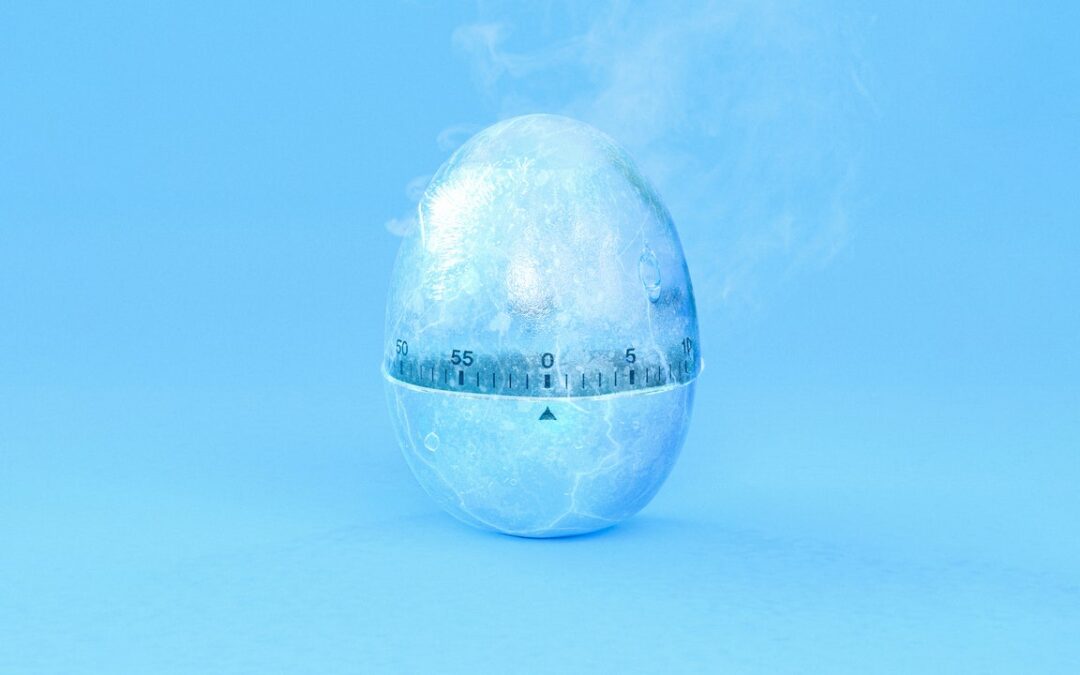“My identical twin sister alerted me to the fact that, as hemophilia carriers, we should most likely have kids through IVF in order to screen for the genetic mutation. Because I am a carrier, any daughter I have would have a chance of being a carrier and a son would have a 50/50 chance of having hemophilia.
“I am currently in the middle of the [egg retrieval] experience. So far it has been easy, and uneventful, but I know it can get worse as I continue the hormone shots. I thought it’d be harder for me to inject myself with the needles, because I can be super squeamish, but I haven’t had a problem at all. My husband has been super supportive and understanding — noting that there’s no way in hell he could do this if he had to, which I agree with.
“I am trying to take it one day at a time and not have too many expectations. I’m trying not to compare myself to others or to their experiences, even my sister’s. Once we see how many embryos we get after this first round, we may have to do another round. We aren’t ready to have children just yet, but plan to try IVF with the frozen embryos in the next year or so.”
“It was nearly a 10-year process to decide to freeze my eggs. I was diagnosed with breast cancer when I was 26 years old, and the idea of fertility preservation was discussed during that pivotal time. Upon the recommendation of my oncologist, I met with a fertility team, who encouraged freezing embryos — as opposed to eggs — to increase my chances of a successful future pregnancy. But I was single at the time, and wasn’t interested in using a sperm donor. In the end, I didn’t need cancer treatment that would impact my long-term fertility, so I decided against any fertility interventions.
“Eight years later, I learned through friends and research that the success of freezing eggs had improved. So I decided, independent of my cancer status, to freeze my eggs for two main reasons: The first was because I was getting older and wasn’t ready for children but wanted to be a biological mother in the future; the second was because I carry a genetic mutation that places me at higher risk for developing certain types of cancer, like breast cancer, and I wanted to be able to have embryos tested for the mutation so those without the mutation can be selected for pregnancy.
“I then elected to freeze my eggs a second time, about eight months later, when my breast cancer recurred and I was going to need aggressive chemotherapy that could have a long-term negative impact on fertility. I was fortunate to connect with The Chick Mission, a nonprofit that helps those diagnosed with cancer pay for fertility preservation prior to treatments. The organization paid for all of my treatment, plus a year of egg storage.
“The process was emotional in ways I didn’t expect. I had heard from people who had gone through it that they felt extra tearful or emotional from the hormonal shifts, but my experience was more the feelings that came from the worry and disappointment associated with a lower-than-desired egg count. It was really challenging to see only a few follicles in each ovary after putting in the time of going to a lot of appointments, the grind of many injections, and the high financial cost. I had come to this fertility preservation process to be proactive about my future childbearing options, not for known fertility issues, so I didn’t expect that to be a factor.
“It was very emotional to be confronted with the idea that it might be challenging to have biological children. I also had some regrets about not starting the process sooner, when perhaps my counts could have been higher.
“I’ve learned that it’s fairly common to have to do several rounds in order to retrieve enough eggs, but at the time I took that as a major disappointment and struggled to come to terms with it. I think I could have eliminated a lot of tears and stress if I had understood and accepted that earlier. After the egg harvesting procedure, my final numbers were better than expected, but it was a very emotional experience for about 12 days — filled with a mixture of hope, despair, fear, and ultimately gratitude.”
“I currently work as a facial plastic surgery fellow and head and neck surgeon, a field that is highly demanding of my time. During my residency, I was mentored by a seasoned female surgeon who consistently addressed the subject of fertility. She strongly advised that I freeze my eggs if immediate motherhood wasn’t on my horizon. I had shrugged off this advice in my mid-20s, but the topic kept resurfacing among my female colleagues over the years. When I discovered my insurance plan would cover a round of cryopreservation, I took the plunge, on my 30th birthday.
“Balancing my demanding job with the frequent clinic visits and hormone injections was challenging. What surprised me was how quickly it was all over; the entire process felt long and short at the same time. The anticipation leading up to it seemed to stretch on forever, but the actual medical procedures were over before I knew it.
“Before embarking on this journey, I wish I had been more aware of the complexity involved in synchronizing the hormone treatments with my menstrual cycle and unpredictable work schedule. While I knew the process would demand daily ultrasounds and frequent office visits over a two-week period, I hadn’t fully considered that everything had to align with my menstrual cycle — a factor that isn’t controllable. This led to multiple delays and a bit more stress than I had anticipated.
“The experience can be emotionally and logistically challenging, but it’s also incredibly empowering. By taking control of my reproductive options, I found a new sense of agency and peace of mind that I hadn’t anticipated.”
“My husband and I are both of similar ethnicity (Lebanese/Syrian), so it was recommended by my OB to get genetic testing. We matched for a genetic disease called familial Mediterranean fever. Although our specific mutations likely would not result in severe outcomes for our children, we did not want to take any risks. When both parents are carriers for this disease, there is a 25% chance offspring will be affected and a 50% chance they will be a carrier. Doing IVF so we could test the embryos for mutations would be the only way to guarantee that our children, and their children, would never be affected.
“I was only 21 years old and not ready for kids yet, but decided to retrieve my eggs right away and freeze embryos that we could use down the line. After getting financial clearance, working with the genetic testing company, taking baseline tests and ordering medicine, I was ready to begin. You don’t have much control over timing — it all depends on your body.
“I had around 19 eggs retrieved. Three days later, I got an update on how the eggs were growing and surviving. On day five, I was told around 13 eggs grew to the correct size and survived. Those were mixed with my husband’s sperm to create embryos and sent to testing. A couple of weeks later, my doctor called to tell me that seven embryos survived and were free of the genetic disease and chromosomally normal.
“Two years later, I decided I wanted to begin the journey to pregnancy. I could have waited a bit longer to get pregnant, but I wanted to start on the earlier side to give myself time in case the transfer did not work. A huge part of what made this experience nonchaotic was creating the embryos way before I planned on using them. This gave me the time I needed to learn about the process, approach it calmly, and be able to give it another shot if things didn’t go as planned.
“After deciding it was time, I went to the doctor on the first day of my period for a sonogram. I kept going in so that they could track when I was ovulating. When it was time, I was given a shot of Lupron [a drug to prevent premature ovulation] and went in for the embryo transfer a day later. It was a five-minute procedure with no anesthesia. I didn’t feel a thing.

